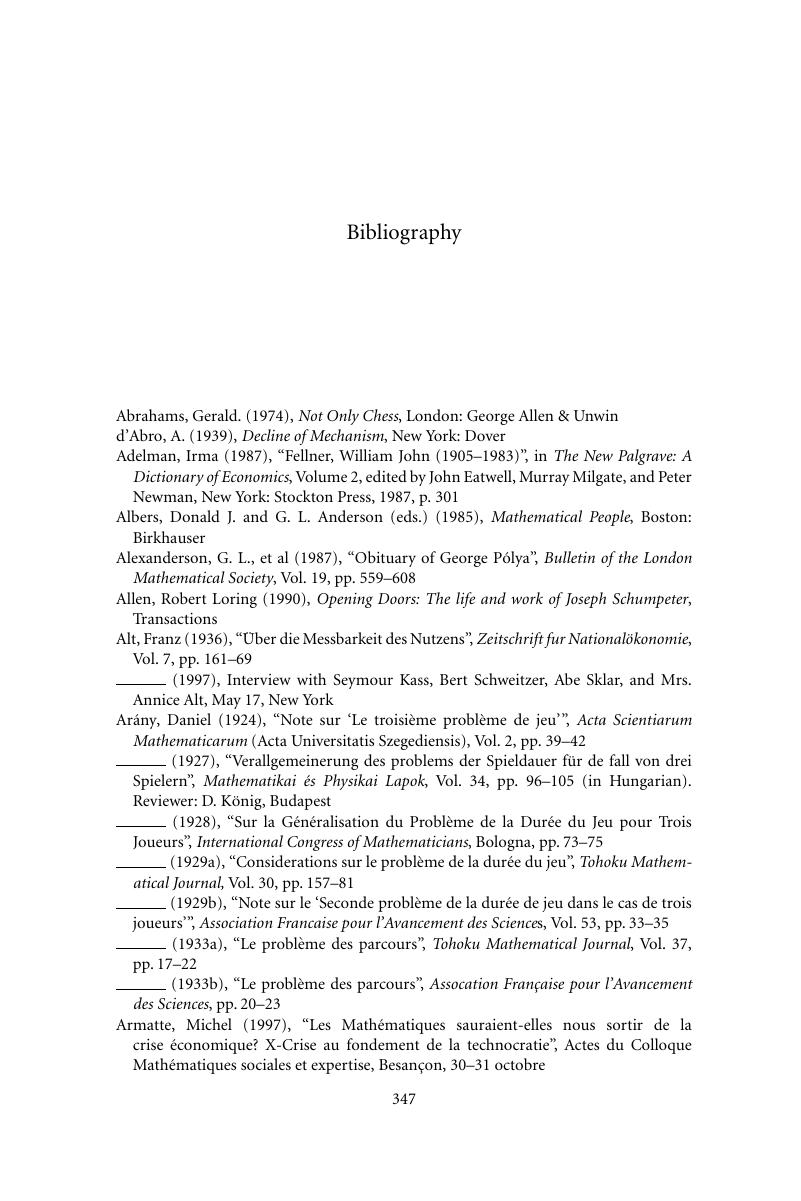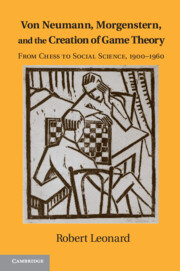Book contents
Bibliography
Published online by Cambridge University Press: 05 December 2013
Summary

Information
- Type
- Chapter
- Information
- Von Neumann, Morgenstern, and the Creation of Game TheoryFrom Chess to Social Science, 1900–1960, pp. 347 - 380Publisher: Cambridge University PressPrint publication year: 2010
